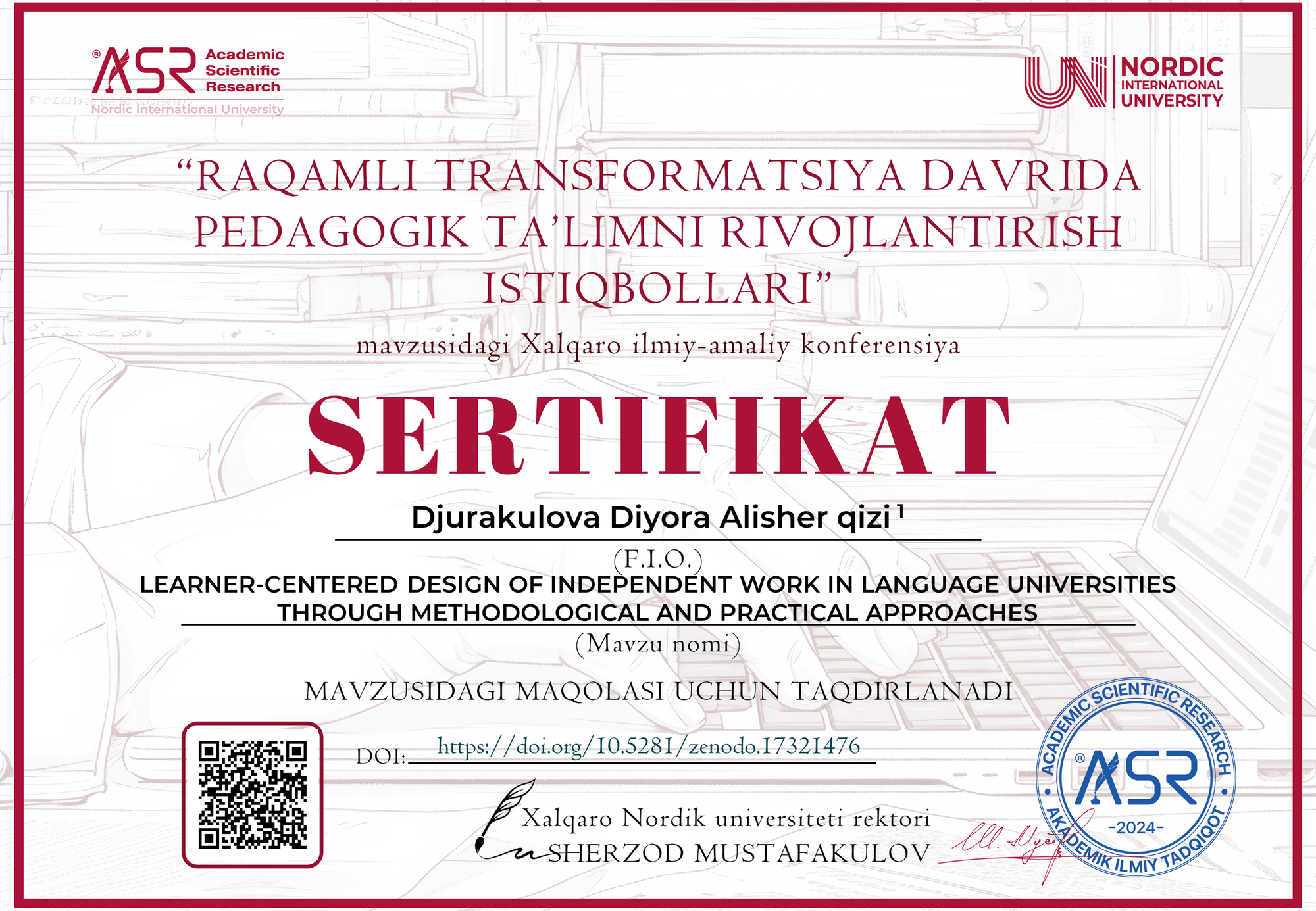Djurakulova Diyora Alisher qizi 1

DOI: https://doi.org/10.5281/zenodo.17321476
Google scholar:
Zenodo community: https://zenodo.org/records/17321476
Nordic_press journal: https://research.nordicuniversity.org/index.php/nordic/issue/view/14
MAQOLANI YUKLAB OLISH
SERTIFIKATNI YUKLAB OLISH
REVIEW:
The article authored by Djurakulova Diyora Alisher qizi addresses one of the most pressing issues in contemporary higher education — the integration of learner-centered education with self-regulated learning theory in organizing independent work at language universities. The topic is highly relevant, as it reflects global trends in pedagogy emphasizing autonomy, reflection, and digital transformation in education.
The paper presents a well-structured analysis that bridges methodological foundations with practical implementation. The author successfully synthesizes international and national perspectives, referring to the works of Zimmerman (1990), Benson and Bracken (2021), Xu and Wang (2022), and Tashpulatova (2023), which reinforces the research’s theoretical depth. The literature review demonstrates a comprehensive understanding of the learner-centered paradigm, and the integration of psychological and pedagogical dimensions adds interdisciplinary value to the study.
The research effectively highlights the complementary relationship between learner-centered and self-regulated learning models. Particularly noteworthy is the author’s emphasis on digital mediation, reflective practices, and project-based learning, which are essential for developing critical thinking and autonomy among language students. The inclusion of a structured table summarizing the key components of this integration significantly enhances the clarity and practical utility of the article.
From a methodological perspective, the article adheres to the principles of academic rigor. The logical flow between sections, the use of empirical and theoretical sources, and the balance between conceptual explanation and pedagogical implications are commendable. The author’s argumentation is coherent, with each claim supported by evidence and scholarly references.
In terms of originality, the work stands out by offering a holistic model for designing independent work that merges psychological self-regulation with pedagogical humanism. This synthesis represents an innovative step in language pedagogy, moving beyond traditional classroom management toward learner autonomy supported by digital technologies.
Conclusion:
Overall, Djurakulova’s article is a scientifically sound, methodologically grounded, and practically significant contribution to modern pedagogy. It provides clear theoretical justification and feasible recommendations for improving independent work organization in language universities.
The article’s relevance, clarity, and research-based analysis make it suitable for publication in academic journals focused on pedagogy, language education, or higher education innovation.



